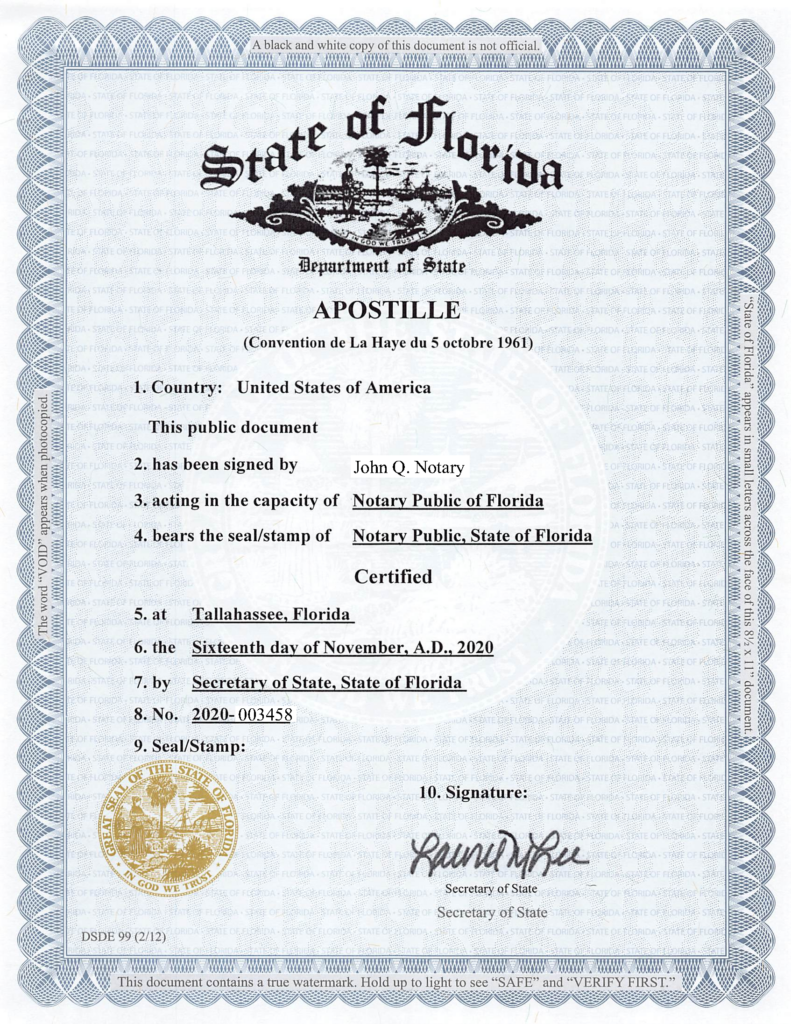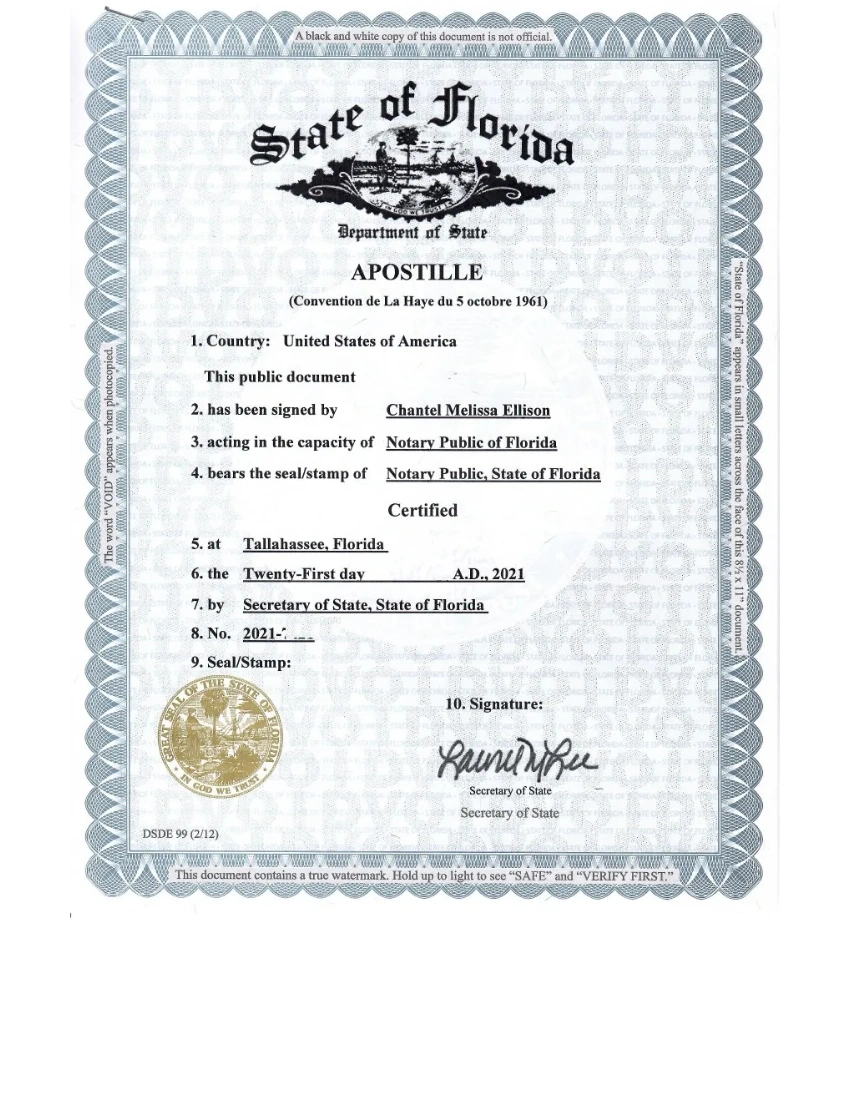Understanding the Significance of Apostille Qualification and Why It Is Vital for Legal Papers
Among the various mechanisms readily available for this objective, apostille qualification stands out as a structured and globally identified technique. Comprehending the complexities and implications of apostille accreditation on legal documents is crucial for individuals and companies engaging in cross-border tasks.
The Interpretation of Apostille Qualification
Apostille accreditation is a specific kind of authentication that verifies the authenticity of a legal document for global usage. This accreditation is essential for making certain that papers coming from one country are identified as valid in an additional, simplifying the process of cross-border deals, legal process, or individual issues like marriage or adoption. The Hague Apostille Convention of 1961 established the structure for this simplified certification procedure among participating nations.
To obtain an apostille qualification, the designated authority in the file's nation of beginning must validate the document's credibility before connecting the apostille. When attached, the apostille makes sure that the document will be accepted as valid in any various other nation that is component of the Apostille Convention, without the need for further accreditation.
Advantages of Apostille for Legal Documents
The use of apostille qualification improves the international acknowledgment procedure for legal documents, offering substantial benefits in facilitating legal procedures and cross-border engagements. By attaching an apostille certification, the paper ends up being readily approved in countries that are component of the Hague Apostille Convention, removing the requirement for more authentication.
In addition, apostille qualification improves the overall performance of legal treatments by simplifying the procedure of verifying the authenticity of a file. This is particularly helpful in scenarios where time is essential, such as in lawful matters calling for swift cross-border activities. Furthermore, apostille qualification assists in cultivating count on and self-confidence among events associated with worldwide transactions, as it works as a globally acknowledged seal of approval for the document's credibility. In general, the advantages of apostille accreditation for legal documents are instrumental in promoting smoother international interactions and making certain compliance with legal needs across borders.
Apostille Vs. Legalisation: Secret Distinctions
When comparing the procedures of apostille accreditation and legalization for lawful files, it is necessary to recognize the essential distinctions in their particular authentication methods. An apostille is a simplified form of legalization that is approved among countries that become part of the Hague Apostille Convention. The apostille procedure verifies the authenticity of the record and the signature of the releasing authority. It does not need more embassy or consulate legalisation, making it a more simple and economical approach for verifying records globally.
On the other hand, legalisation is an extra traditional method that includes numerous steps of authentication. It needs verification by different authorities, including government departments and international visit their website consular offices or consular offices in both the releasing and obtaining nations. This procedure can be a lot more taxing and expensive contrasted to acquiring an apostille. The selection in between apostille qualification and legalisation depends on the particular demands of the country where the file will be used. Comprehending these differences is critical for ensuring the proper authentication of legal files for international use.
Countries Approving Apostille Accreditation

While the Hague Apostille Convention has dramatically simplified the procedure of cross-border file verification, there are still countries that are not event to the convention - Houston TX Apostille. Because of this, files predestined for these countries might call for typical legalization treatments with consular offices or consulates. It is critical for individuals and organizations dealing with worldwide purchases to confirm the details requirements of the location country to make sure conformity with their legal criteria
Steps to Get Apostille for Files
To acquire an apostille for your records, you dig this need to begin by determining the proper releasing authority in your country. Once you have actually identified the right authority, the following action is to make sure that your paper satisfies all the requirements for apostille certification.
After confirming that your document fulfills the standards, you will certainly require to complete an apostille application kind provided by the releasing authority. This kind will call for information regarding the file being verified and the country where it will certainly be made use of. In addition to the completed application type, you will likely need to send the initial paper, a copy of your identification, and any kind of suitable fees.

Conclusion
Finally, apostille qualification plays a critical function in guaranteeing the credibility and credibility of lawful papers for international usage (Houston TX Apostille). Understanding the value of apostille accreditation is important for organizations and people navigating the intricacies of lawful matters and cross-border deals. By obtaining apostille accreditation, parties can streamline the procedure of document confirmation and authentication, eventually conserving time and sources in the global arena
To get an apostille certification, the marked authority in the document's country of beginning should validate the document's authenticity prior to attaching the apostille. As soon as attached, the apostille makes sure that the record will be accepted as legitimate in any various other nation that is part of the Apostille Convention, without the need for additional certification.
By connecting an apostille certification, the document comes to be readily approved in nations that are component of the Hague Apostille Convention, removing the need for additional verification.Differentiating in between apostille certification and legalisation exposes the differing acceptance of these verification methods across different countries, with some nations particularly identifying and adhering to the apostille process. The apostille certification is commonly accepted among nations that are component of the Hague Apostille Convention, which currently has 118 member states.